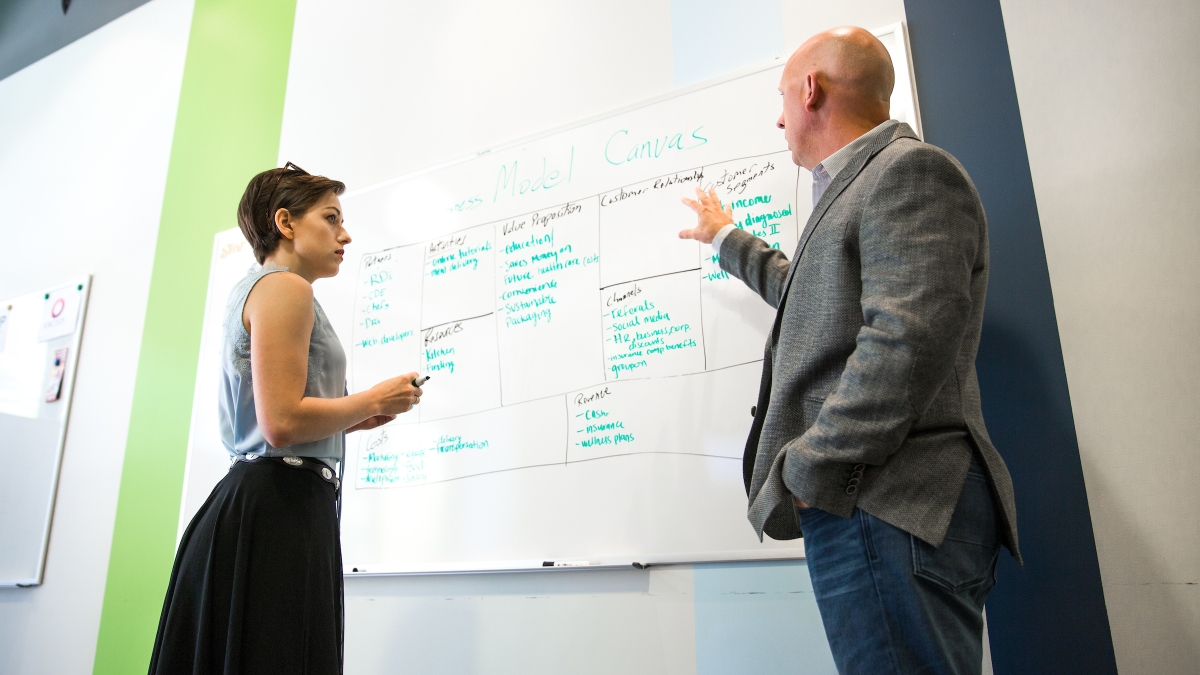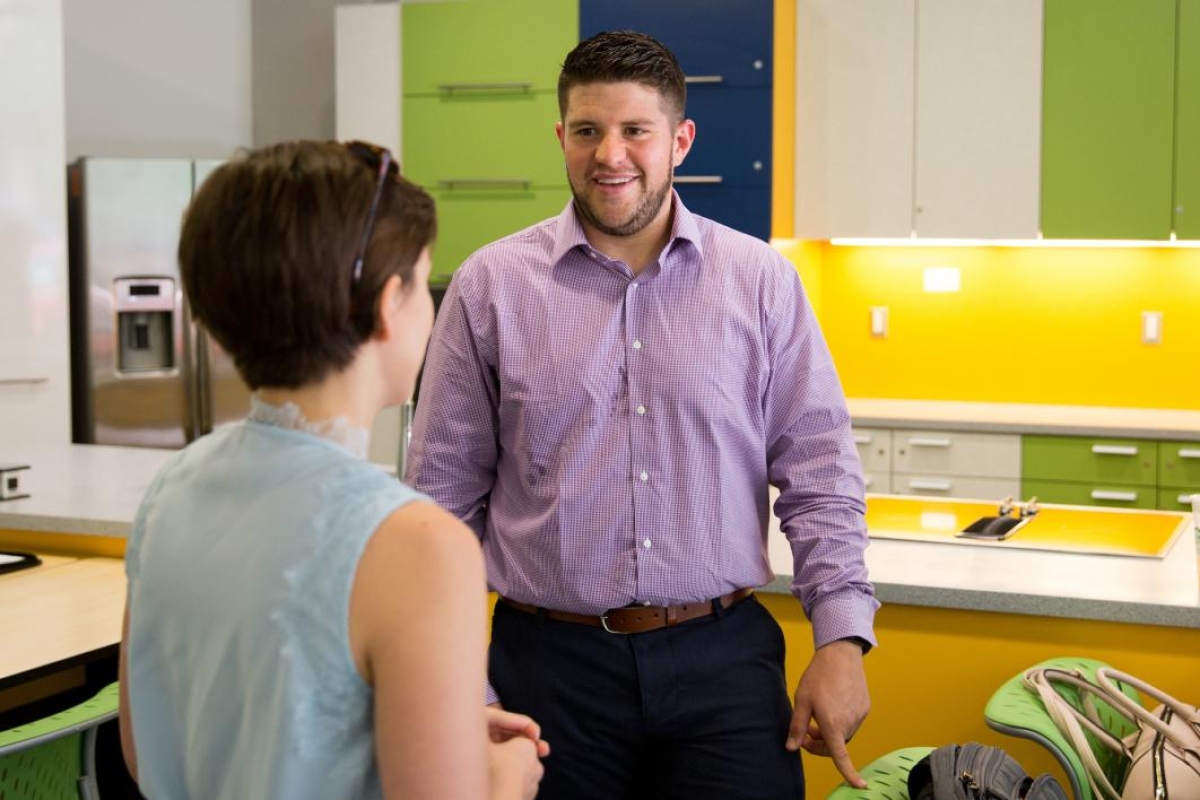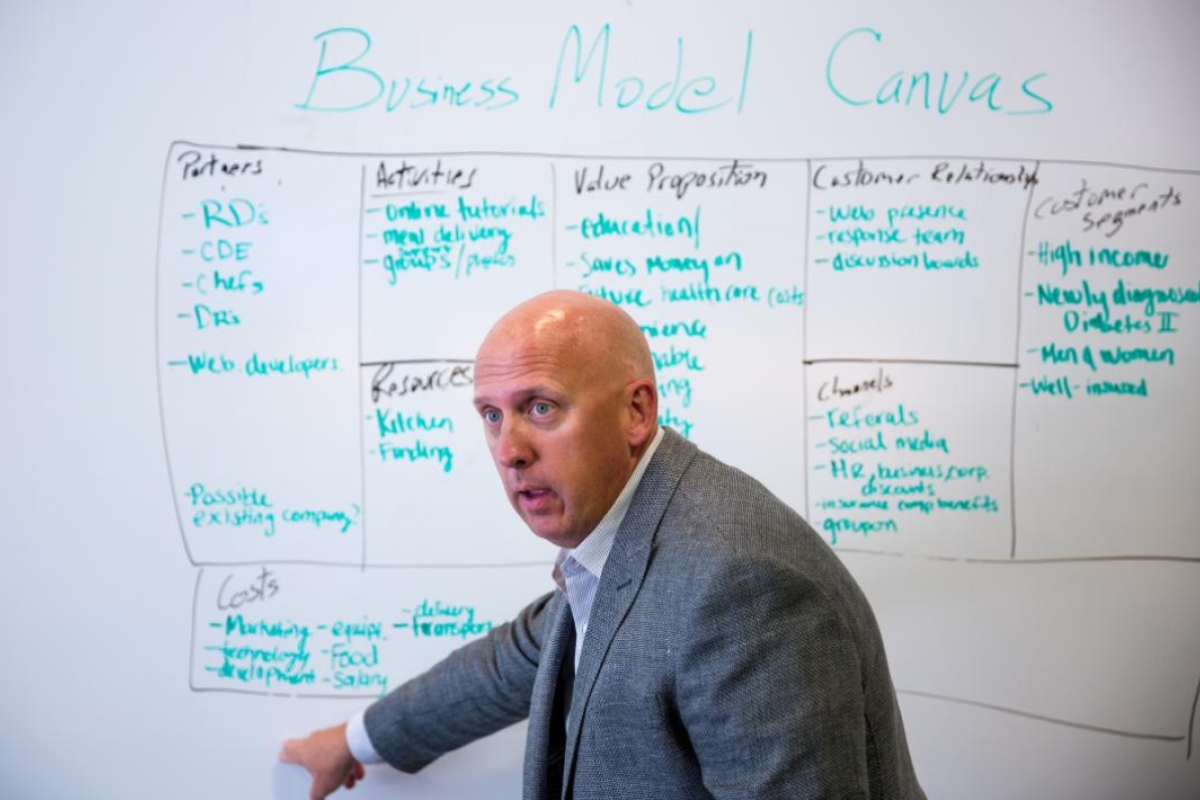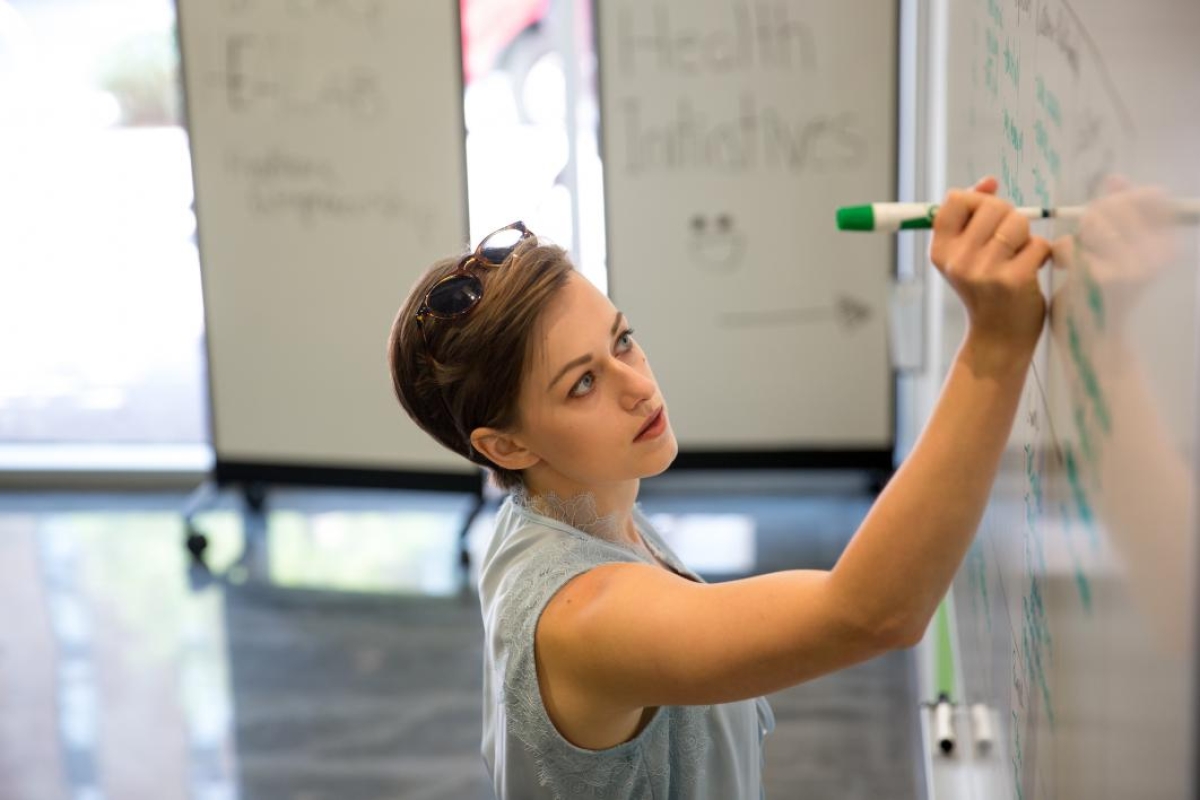Editor's note: This story is being highlighted in ASU Now's year in review. To read more top stories from 2017, click here.
Arizona State University has a reputation for innovation, so it’s no surprise that its schools are brimming with resources to support entrepreneurial and solutions-based endeavors.
There’s the Center for Entrepreneurship at the W. P. Carey School of Business for enterprising businesspeople, Entrepreneurship + Innovation @ the Fulton Schools for aspiring rocket scientists and the New Media Innovation and Entrepreneurship Lab at the Walter Cronkite School of Journalism and Mass Communication for go-getting journalists.
But when it came to budding health-care professionals, there was a gap. Healthcare Innovation Program Director and Clinical Professor Rick Hall filled that gap Wednesday with the soft launch of HEALabHEALab stands for Health Entrepreneurship Accelerator Lab. on ASU’s Downtown Phoenix campusHEALab occupies the same space as Taylor Place Kitchen, on the south side of Taylor Place..
Hall pitched the idea of a health- and wellness-centric entrepreneurship lab six months ago to leaders at the College of Nursing and Health Innovation (CONHI) because, he said, “There was a little bit of a vacuum on the downtown campus for entrepreneurial activity. There are great colleges that have students with entrepreneurial aspirations, but we didn’t really have the resources that you see on some of the other campuses.”
There were times when Hall, who teaches entrepreneurial courses for CONHI, was approached by such students and had to refer them elsewhere.
“So now,” he said, “instead of sending students away to SkySong or somewhere else, we have our own lab on campus where we can encourage students to come in, work together to ideate solutions to problems related to health and take the next step, and help them work on things like business plans and marketing, things that they need to start up their solution.”
At Wednesday’s soft launch, Hall was working with dietetics undergraduate Erin Washbon on a business model for her diabetic meal-kit company, which she hopes will help recently diagnosed diabetics adjust to the lifestyle change by providing well-balanced meals along with educational information.
The way Hall and Washbon have approached the business plan — fluidly, by writing, erasing and rewriting lists under headers with labels like “resources,” “value proposition” and “costs” on a whiteboard instead of typing up a more traditional, fixed 10-page document — allows for flexible thinking and the ability to adapt as customers, markets and needs change.
It’s a brainstorming process Hall foresees all mentors and mentees at HEALab employing, followed by building a prototype and testing it out. Washbon, a junior, hopes to have a solid enough plan to pitch at one of the many ASU startup competitions before she graduates.
“There are so many invaluable resources at ASU, it would be silly not to take advantage of them,” she said.
And you don’t even have to be a student to do so.
Drew Saenz, a former student of Hall’s who graduated in 2015 with a degree in exercise and wellness, started a successful company called Team Up that focuses on providing fitness training to special-needs kids. He’s looking to branch out into corporate wellness and visited HEALab on Wednesday to brainstorm with Hall on ways to do that.
Hall immediately introduced Saenz to Washbon and urged them to exchange contact information. It’s clear he relishes these kinds of moments, opportunities for like-minded individuals to connect, share and perhaps create something new.
“A year from now, they could have a business together,” Hall said.
There are a handful of other projects Hall has been working with that he hopes to bring into the fold at HEALab, including a fitness app that uses an avatar to show people how their body will change; a nonprofit that hopes to provide detox services to infants of opioid-addicted mothers; and a business that would provide insurance for preventative health rather than treatment.
As it evolves, HEALab plans to offer a monthly speaker series (beginning Oct. 11); weekly networking and idea-generation meetings; pitch competitions; mentoring and office hours; a space in which all that can happen; and more. And it’s all available to students, faculty, staff, alumni and the general public.
“That’s really unique and smart because if we’re helping the community, it just helps us, and it helps with ASU’s mission of social embeddedness in the downtown area,” Hall said.
HEALab will also provide services to participants of Prepped, a free six-week program offered by ASU’s Office of Entrepreneurship and Innovation that began last year as a way to support entrepreneurs from underserved communities start food businesses.
The official grand opening of HEALab will be in October, but Hall encourages anyone interested in what it has to offer to stop by and check it out on the ground floor of Taylor Place, a residence hall on the Downtown Phoenix campus.
“Our goal,” said Hall, “is to connect the dots between these enormous opportunities for innovation and the resources to make them happen.”
For more information about HEALab, visit its webpage at nursingandhealth.asu.edu/healab.
Top photo: Erin Washbon meets with the director of the HEALab, Rick Hall, at Wednesday's soft launch of the entrepreneurial space. The startup incubator is geared toward health and wellness students on the Downtown Phoenix campus but is open to students of any major, as well as faculty, staff, alumni and the general public. Photo by Anya Magnuson/ASU Now
More Health and medicine

Fighting the fungus among us
It starts with a spore.When inhaled, spores of the coccidioides fungus can cause coccidioidomycosis — better known as valley fever. The spores may be fungi, but they are no fun.Valley fever usually…

$5 million gift to provide scholarships for new ASU medical school students
A $5 million gift from longtime Arizona State University donor Annette Beus and her family will help provide scholarships for 72 students in the new School of Medicine and Advanced Medical…

The science of sibling dynamics: Why we fight, how we relate and why it matters
We have Mother’s Day, Father’s Day and even Grandparents’ Day. But siblings? Usually they get a hand-me-down sweatshirt and, with any luck, a lifetime of inside jokes.But actually, there is a…





